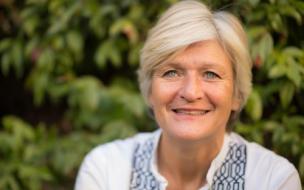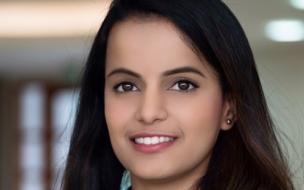Adelaine, 31, first studied electronic engineering at The Tunku Abdul Rahman College in Kuala Lumpur, she says that this degree was more for practical reasons. “In the 90s, the hype was all about the electronic sector in South East Asia with many big manufacturers and multi-national corporations moving their production to Malaysia.” There was also a shortage of engineers and Adelaine saw that an engineering degree could be useful on the commercial side as well.
She then studied for her Bachelors at the University of Lincoln which had a Malaysian campus partnered with KDU a Malaysian college. During her internship in her final year she discovered that technical work was not for her. “I found it too mundane. When I graduated I thought it would be good to try something more people-oriented so I applied for a position in marketing with a manufacturing company for industrial equipment.”
This manufacturing company was part of a group of SMEs with a diverse portfolio, private equity-backed. Adelaine spent more than nine years in the group, moving from marketing into more start-up oriented roles. “The aim was to get new business ventures for the group going. This brought about the birth of a import-export company for consumer goods in Malaysia and Singapore, which we eventually sold.”
Adelaine’s last role for the company was to co-ordinate the integration of a new subsidiary in Germany for the manufacturing company which she had first worked for. “The responsibility was a combination of market development in Europe and aligning the new company's operations to those of the Malaysian headquarters.”
Moving to Germany for her job left Adelaine with a lot of time: “Working in Asia in general means longer working hours; there is also a lot of socialising after work. I suddenly found spare time on my hands and decided to do something productive with it. Otherwise it would have been spent at the pub!” An MBA was something Adelaine had always considered but never had enough time to devote to it.
Adelaine knew it needed had to be a distance-learning programme, preferably in Europe for proximity. “I had work commitments and the main aim was to fill up my spare time after work. I also could not afford to take a year plus away from work. I also wanted something which was well recognised and did not require that I sell my kidney to finance it, since I would have to pay for it myself. Surprising such basic criteria narrowed the search down to very very few programmes and Warwick Business School came out on top.”

Distance-learning MBA students at an on campus module
There were fewer business schools offering distance-learning MBAs in 2007 and Adelaine found most of them operated out of the United States so Warwick Business School was the only school Adelaine applied to. WBS had great rankings for distance-learning programs and had a long history in offering the programme and importantly it was affordable. “In retrospect, I would have still chosen it based on the same criteria but there would now be more schools to compare.”
So, Adelaine was now accepted onto the Warwick MBA and had to find the right work-study balance. “I greatly underestimated the time that I would need to put into it. The first year was such a big struggle to get the hang of having to study again. As my first degree was in engineering I had a very tough time figuring how to answer in the right style.”
Success could only come out of self-discipline, making the time to allocate to study but with so much going on, “I tended to forget most of what I studied at the beginning of the year by the time exams came along.”
Many of the compulsory modules were exam-based and Adelaine found it nerve wracking to have to sit exams again. “Having said that, year two was much better after I got the hang of it. It was significantly easier and I had a better sense of how to manage my time.” Adelaine says she was not alone in having underestimated the workload: most of the cohort had a very demanding work-load and family, and “especially those with young children found that it was not as easy as we all had thought to juggle everything.”
The Warwick Business School MBA in fact has three study modes: distance-learning, executive and full time.
The Executive MBA is a mode of study for people who can take some bulks of days off. “It is three years like distance-learning but modules are delivered in intensive face to face classes.” Some of Adelaine’s distance-learning classmates had chosen to switch to the Executive MBA as they found the distance-learning was not suitable to their other commitments but they could afford to take a week-off from work.

The group bonding over dinner
Adelaine switched to the full-time MBA as she found that she could “finally” financially afford to take six months off work. “Many of us are often nostalgic about the good old university days and this was a great opportunity to re-live them. My task in Germany was almost done and I thought this would be a great way to take a breather from working life and try something different after graduation.”
The company Adelaine had worked for for nine years were understanding and so Adelaine “just took a leap.”
Having been both a full-time MBA student and a distance-learning MBA student Adelaine says both have their pros and cons and ultimately it is down to what suits you at that period of time.
Distance-learning has many more students from a more diverse, and generally older backgrounds. “Distance-learning students also tend to cluster more, I guess you desire more peer support and interaction in these programmes. The participants are also more focused and are in similar situations of juggling multiple commitments and this helps to bind peer groups together.”
The full-time MBA was “more relaxed and more fun. There was much more time to enjoy the life of a student than cramming it into the one or two times that we meet in a year for on-campus courses.” For Adelaine it was a chance to relish being a student again, enjoying many of the activities organised by the class.
She found the full-time MBA classes easier to follow, more interactive, and many of the classmates had business experience relating to that particular topic. However the breadth and depth of the syllabus is wider in distance-learning and “you can really expand your knowledge without having to follow the speed of others.

Camping out in the kitchen to meet those all-important deadlines!
The biggest test of the MBA was being placed in groups: “Sometimes you were given a group of people that you could work seamlessly with and other times you are designated a group that made you wonder why you were there.” Adelaine quotes John Donne’s ‘No man is an island’ and jokes that the face-to-face modules really proved this to be true.
Having just completed her project and dissertation, Adelaine is now back in Malaysia for a break before starting her job search about which she is realistic. “To be really honest, I don't expect that the MBA will be the magic pill to drastically change my life or career. But it is a life changing experience. For me it was really enriching and enjoyable. As for the MBA's long term benefits. It is too early to tell but it was a really good experience which I would gladly do again.”

No-one wanted to be the first to take the mic at the MBA karoke...
Rachel Killian, Marketing and Recruitment Manager for the Warwick MBA says that: “However you study at Warwick, you follow the same core curriculum and have access to around 50 different electives all offered in a variety of formats. This means students have a great amount of flexibility in their studies and allows them to either speed up or slow down their studies, switch between different delivery routes or just take one or two of their electives in a different format.
"We believe that everyone should have a chance to reach their potential no matter what challenges might arise from changes to either their professional or personal lives. So a student only half-way through their full-time programme who is offered a job of a lifetime on another continent can finish their MBA by distance learning, or if a promotion and a new baby come along at the same time for an Executive MBA student, then they can put their studies on hold for a month or two until they are ready to continue.
"Each year we have two or three students that swap in or out of the full-time MBA programme, with many more switching between either the distance learning or Executive MBA programmes.”

"I still find that the best part of my MBA experience is the people that I met and the friends that I have made."
RECAPTHA :
c6
73
cf
98







